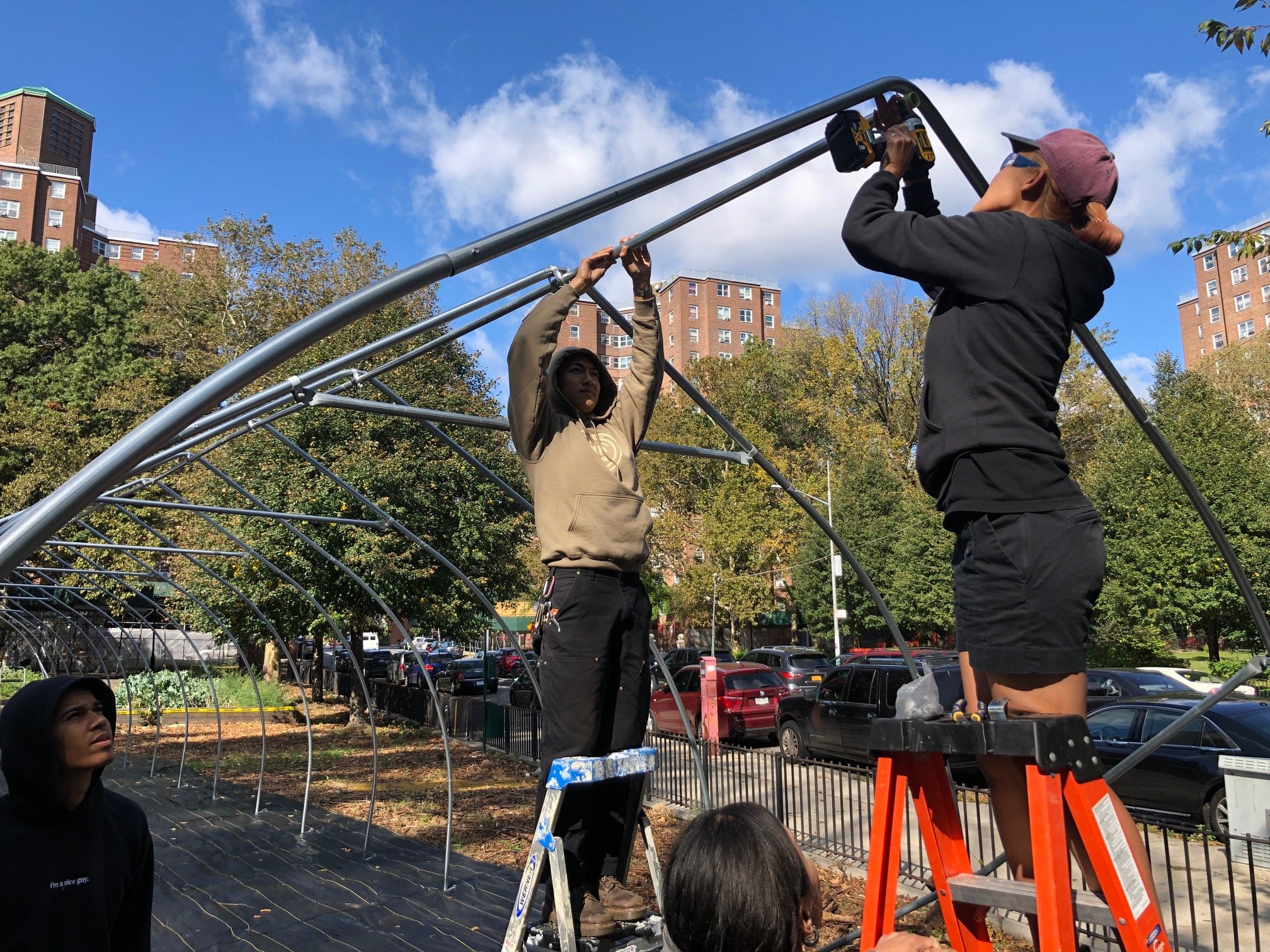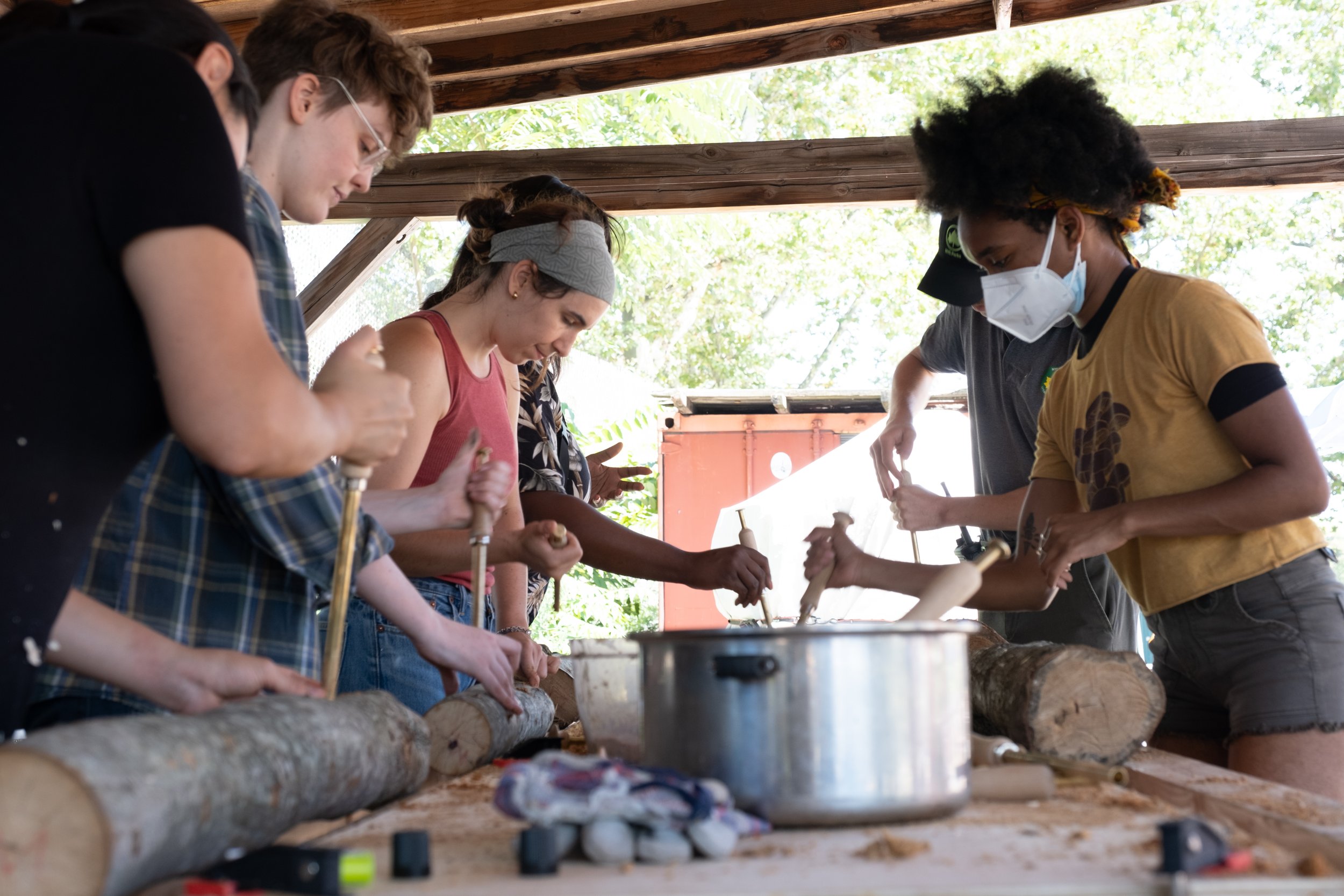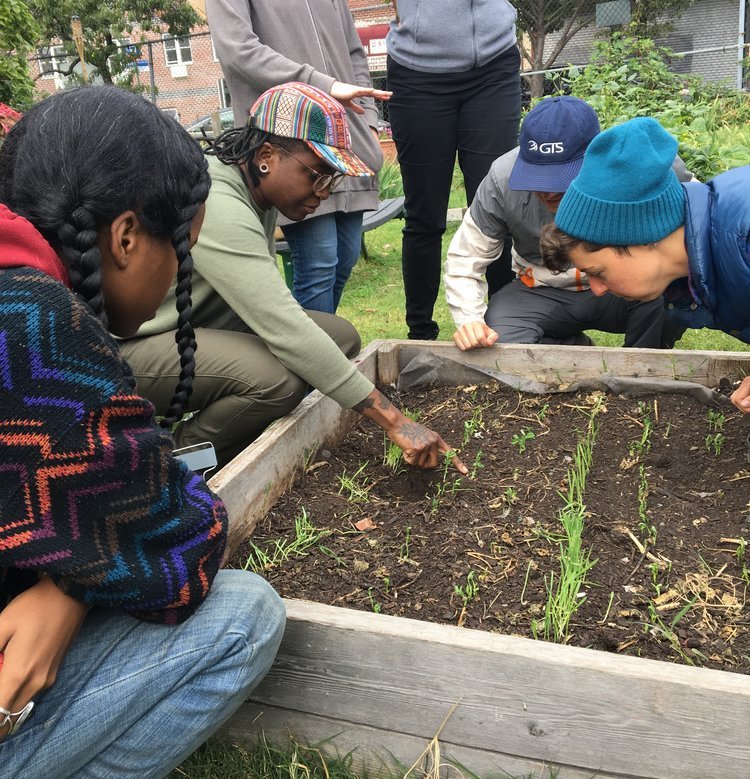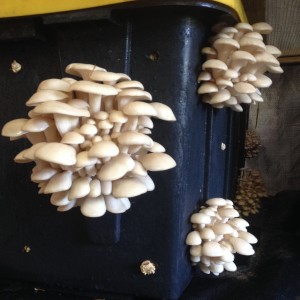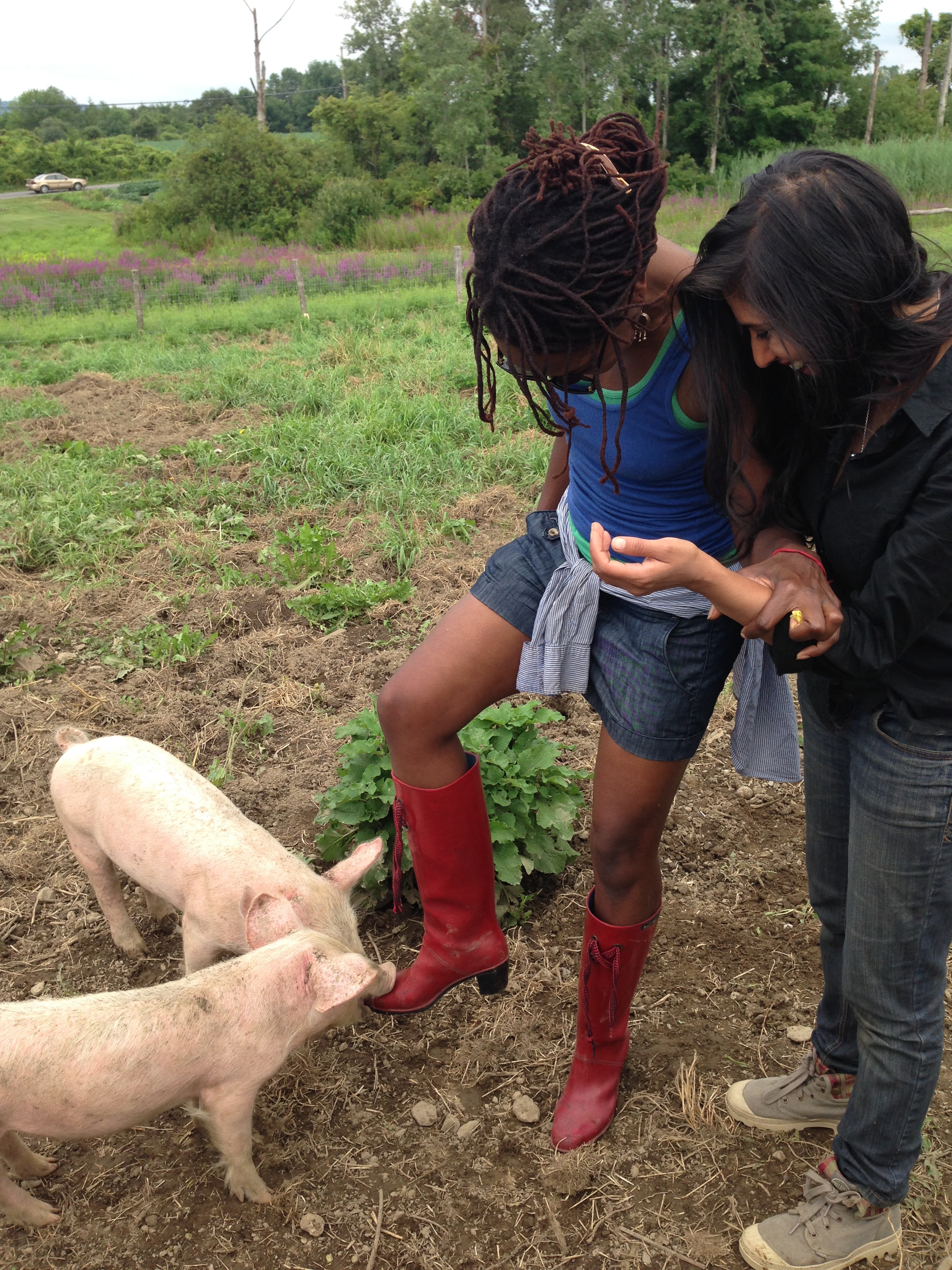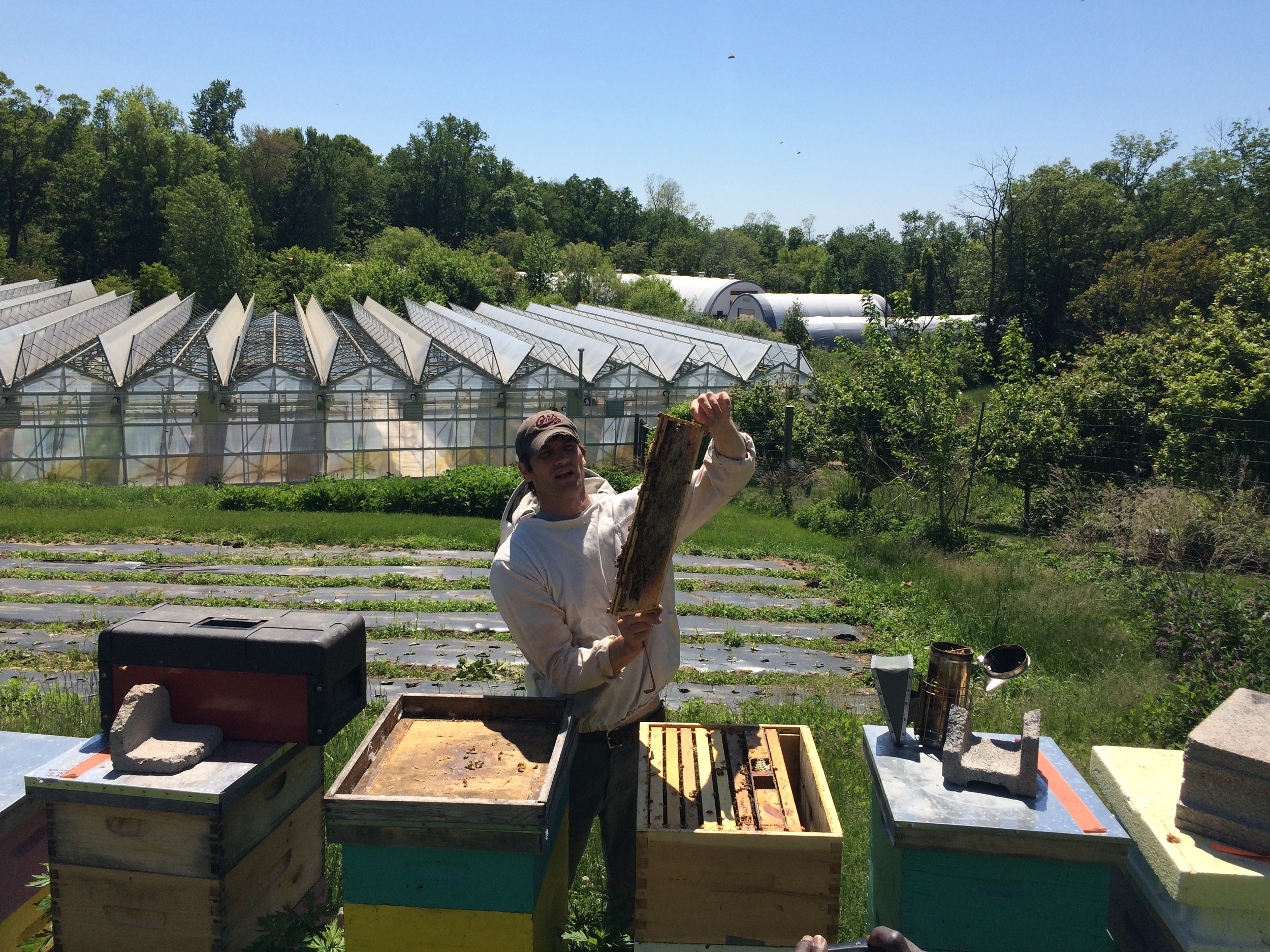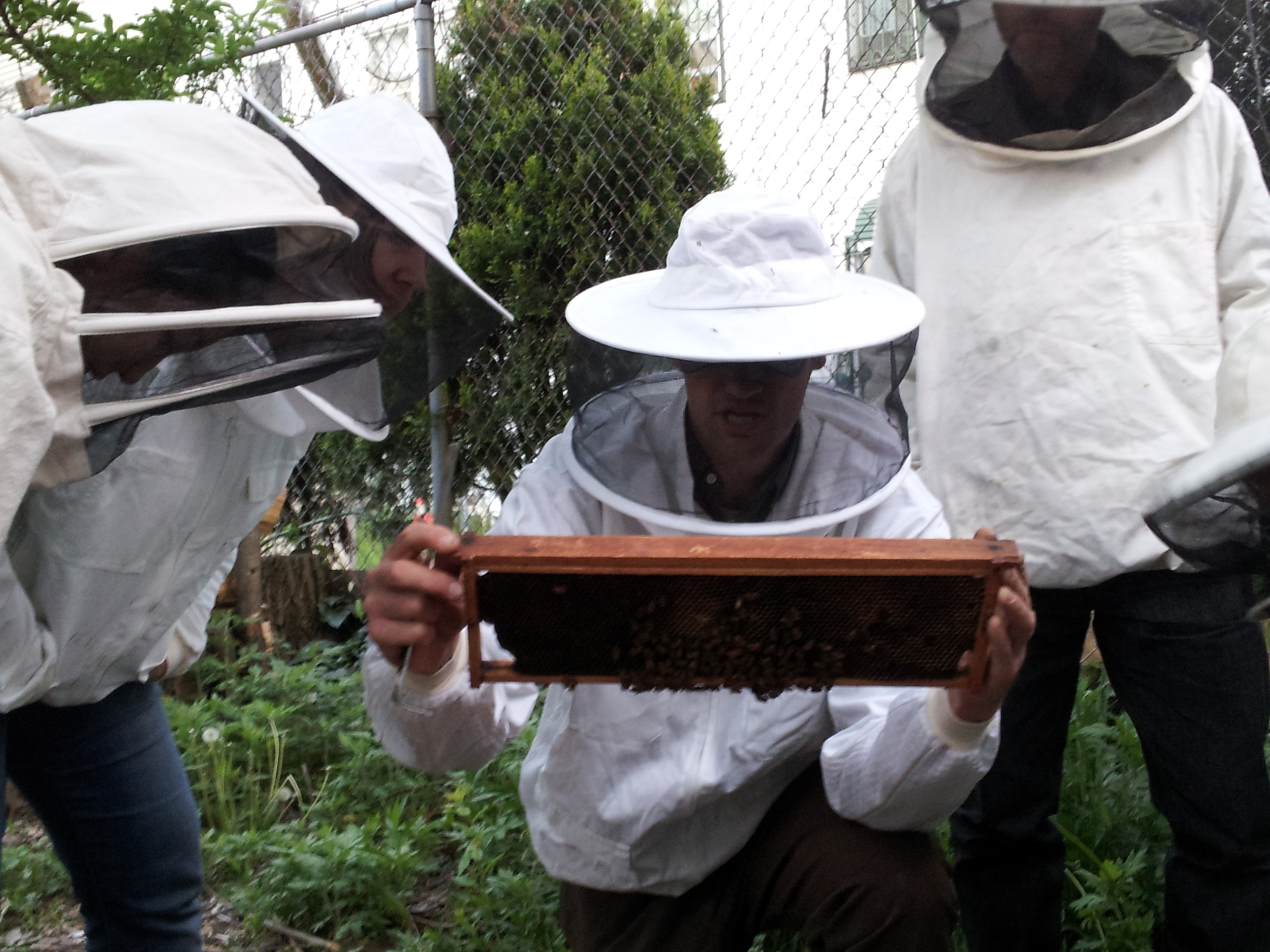Public Offerings
In the coming year, we will offer versions of some of the courses listed below as courses open to the general public. We are still determining changes we will make to these offerings.
PUBLIC COURSE REGISTRATIONS OPEN:
Learn more and register for our Cultivating Prosperity course today!
Previously Offered:
Facilitation: Interested in putting your values into practice as a facilitator? In this three week in-person course, we practice planning curriculum and lesson plans for a wide range of audiences. Come learn about education pedagogies and various approaches for student centered learning. This course is for anyone who wants to take the next step to hone their facilitation skills to support personal and community growth. This course is usually offered in the mid - late summer season.
Community Food Arts: In this course, students learn about processing and preserving food through canning, pickling, drying, fermenting, and medicine making. Our facilitators also cover relevant food safety standards. On the class trip to Rise & Root, everyone prepares a value-added product together. This course is usually offered during the late summer season.
Advocacy: Students will walk away with an understanding of NYC, state, and federal policies and how they affect food access and food production in an urban setting. Students will develop skills in campaign building, community organizing and effective writing for and streamlining messaging around these issues. This course is usually offered in the fall.
Crop Planning: Advanced crop planning for vegetable, fruit, flower, and herb production. Students will gain a deeper understanding of specific plant families, including crop science and growing needs. Students will develop crop plans. This course is usually offered in the winter.
Enterprise: Students will learn and demonstrate the fundamentals of business planning, development and management of enterprises in a local food system. Students will be prepared to identify opportunities and develop and implement sustainable models for local food production, processing and/or distribution for economic and/or social benefit. Students will gain skills in development of CSA, farmers markets, farm to school and farm to restaurant models and the regulations that accompany such trade.This course is usually offered in the fall.
High Tunnel Basics: This course will review high tunnels (sometimes called hoop houses) and their many uses, values, and styles. It will include how to plan for choosing a site, construction, and basic maintenance of a high tunnel in harmony with the urban setting. This course is open to individuals in New York City with basic farming or gardening knowledge who are ready to take the next step in adding growing infrastructure to their urban garden or farm. This course is supported by USDA NRCS. This course is usually offered in the fall.
Mushroom Production: Cultures around the world have revered mushrooms as a vital source of nutrition and healing for centuries. They offer communities opportunities to address issues of unequal access to land, infrastructure and capital, which are all identified barriers to equity and justice in food production. This six-week course explores the ethnography and social justice aspects of growing mushrooms and trains new and experienced farmers in basic mycology, outdoor and indoor cultivation methods, financial planning for commercial mushroom production.
Soilless Practices: This course introduces participants to soil-less food cultivation via aquaponics, an ancient eco-system method that combines plant production with fish cultivation. Each week will focus on various aspects of aquaponics including microbiology, aquaculture, hydroponics, water quality parameters and system design. This course is usually offered in the mid - late summer season.
Teaching: Through practical application and classroom time, students will gain skills in lesson and curriculum planning for a wide range of children and youth. Participants will learn about existing garden and food justice education curriculum and how they can be integrated with public education state standards. This course is for teachers who want to learn about garden curriculum and for gardeners who want to learn how to teach children and youth.
Raising Animals : In this course, students will gain a comprehensive understanding of animal husbandry in NYC, including care and legality of keeping livestock in the city. Specifically, students will focus on raising chickens, bees, and small ruminants. This course is usually offered in the winter.


